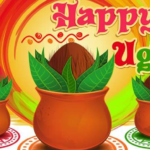You never know when a celebration may pop up around the corner in India, regardless of what time it is. During the festival season in India, September through October is the peak period.
This event, also called the Mahashtami or Maha Durga Ashtami, is commemorated with tremendous fervor at this time of the year. On the eighth day of Navratri, which is also the second day of Durga puja, there is a festival in honor of Durga.
Many traditions are conducted by zealous followers. Astrapuja is also regarded as “weapon worship.” On Durga Ashtami, Durga’s weapons are revered. In the day before Durga Ashtami, activities of martial arts are known as virashtami.
Durga Ashtami 2023 Vrat Date
Durga Ashtami 2023 dates for Chaitra navratri and Shardiya navratri:
Chaitra Navratri Ashtami tithi: 29th March 2023
Shardiya Navratri Ashtami tithi: 22nd October 2023
Durga Ashtami History
Durga Ashtami commemorates Goddess Durga’s triumph over Mahishasura, the wicked buffalo monster. According to legend, Mahisasura can only be destroyed by a female fighter due to a blessing granted onto it by Lord Brahma.
Brahma, the holy trinity, Vishnu, and Shiva formed Durga when Lord Indra was defeated on the battleground, and every portion of her anatomy was endowed with the powers of various male Gods. Durga Ashtami used her spear to beat Mahisasura on this day, using weaponry that represented their male power.
Women generally take center stage during this event, serving as a sharp reflection of how women always had much greater power and prestige in ancient India. These are just a few of the numerous legends surrounding this festival:
- Animal sacrifices are conducted in temples in some areas of the nation, particularly Odisha, West Bengal, and Assam, to mark the event.
- On Ashtami, upon completing the fast, nine little girls under the age of 10 are adored, served lavishly, and given new clothing, among other things.
- On the ninth day, laptops, cars, literature, and work tools are revered in South India as a show of appreciation for the previous year’s benefits. By dedicating one’s trade tools to God, one pledges to treat all labor as worship.
Durga Ashtami Celebration
Among other things, Ashtami is commemorated with tremendous zeal and enthusiasm, particularly in West Bengal. The ten-armed goddess riding the lion is widely revered in this region of the nation, as well as the weaponry of Goddess Durga are venerated during a ceremony referred as Astra Puja, in which mantras are spoken as the goddess is honored.
Ashtami is the eighth day of the celebration, and followers prefer to conduct a hard fast, feast, and devotion for Goddess Durga, who represents power, on this auspicious day. For this festival, which is meant to commemorate cultural heritage and tradition, huge idols of Goddess Durga are erected across India, and large puja pandals are put up in different locations for worshipers to come and worship at.
Details about Vijayadashami
Durga Ashtami Feminism
In no question, the event promotes feminine strength and independence, but it will only sound right if it is interpreted and modified to reflect the realities of today’s society. The ceremony of Kanya Puja, for example, is extremely retrograde in nature.
The only females who are deemed ‘pure’ enough to be adored those that have not yet begun their menstrual cycles.
However, how can a celebration that honors femininity be relevant if it bans women who are currently menstruation from participating? Menstruation is an important aspect of femininity, and by disregarding it and labelling it as unclean, the event only serves to further the patriarchal view of women.
While this is true, the Kamakhya Temple in Guwahati closes its doors for three days each month during the menstrual cycle, since it is claimed that Goddess Kamakhya’s statue bleeds during this period. As a result, Goddesses also bleed. What, therefore, is it about menstruation women in the actual world that makes them unclean?
Furthermore, is it appropriate to worship female deities as Goddesses? This is incorrect since goddesses are not people, and people are those that have faults and are entitled to basic rights. Let’s also not forget that women, even though they’re not as flawless as the Goddesses, deserve to be treated with dignity and equality. It would imply that not all women are deserving of respect since not all women can be Goddesses, if some women are deserving of respect and other women are not deserving of respect.
FAQs
29th March 2023
22nd October 2023
Yes











